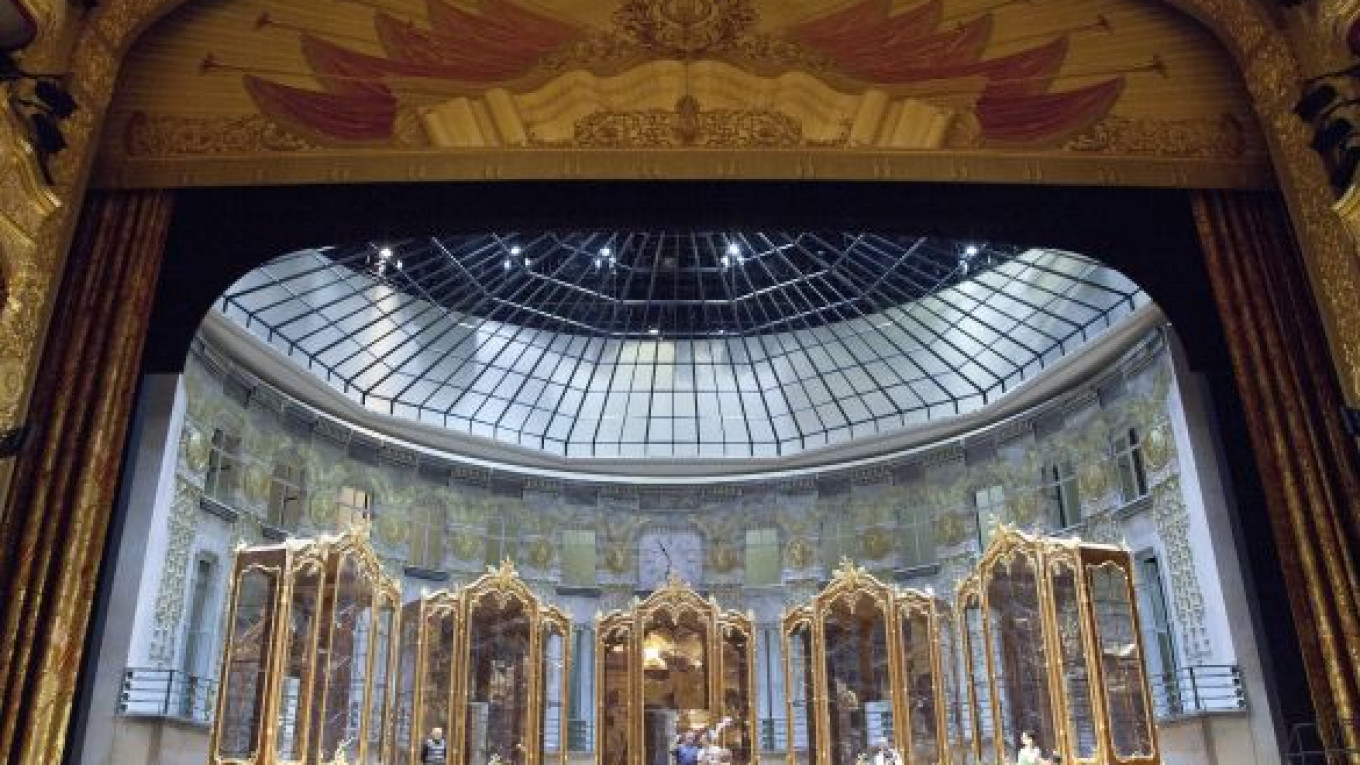Living up to its name, the Bolshoi Theater has turned its 2011-12 season into a season of "the big." To fill its Main Stage after six years of reconstruction, the theater is presenting five very large-scale new productions of opera and ballet and reviving or transferring others that proved too unwieldy for its narrower New Stage or played there under cramped conditions.
Following Mikhail Glinka's "Ruslan and Lyudmila," which reopened at the Main Stage last November, the Bolshoi next week takes on yet another "big" opera, this time its very first production of Richard Strauss' "Der Rosenkavalier." Over the 101 years since its premiere in Dresden, Germany, "Der Rosenkavalier" has come to be regarded as one of the greatest of all operas written in the 20th century and to occupy an important place in the operatic repertoire of the Western world. But only once before, in 1928, at what is now St. Petersburg's Mariinsky Theater, has it ever been produced by a Russian opera company.
Very briefly, "Der Rosenkavalier," set in Vienna of the 1740s, concerns the Princess von Werdenberg, the wife of a field marshal, and referred to in the opera as the Marschallin, her much younger lover, Count Octavian Rofrano, her uncouth cousin, Baron Ochs, and Sophie, daughter of the recently ennobled Herr von Faninal.
Ochs is preparing to marry Sophie. The Marschallin persuades him to engage Octavian as his "Rosenkavalier" (Knight of the Rose) to present a ceremonial silver rose to Sophie in anticipation of his engagement. Sophie and Octavian instantly fall in love and eventually outfox both Ochs and Faninal, while the Marschallin resigns herself to the inevitable loss of her young lover.
To stage "Der Rosenkavalier," the Bolshoi has engaged one of Britain's leading opera directors, Stephen Lawless, who, at a news conference last week, caused at least mild shock waves in announcing that he had set each of the opera's three acts in a different century — the first, as originally intended by Strauss and his brilliant Austrian librettist, Hugo von Hofmansthal, in the 18th, the second in the 19th and the third in the 20th century.
The following day, I had an opportunity to learn from Lawless the reasons behind his radical departure from the standard approach to Strauss' best-known stage work.
"All I am trying to do," he said, "is to liberate what is in the opera. And you can't do that if you set it all in the 18th century." Among what Lawless calls "the things that seem contradictory" in "Der Rosenkavalier" is Strauss' liberal use of the waltz. "The waltz arose in the 18th century," he said, "but only came to fruition in the 19th. And in Act II, which is filled with waltzes, you have full-blown Johann Strauss. That simply sounds anachronistic if you give the Act II an 18th-century setting. And if you do set it in the 18th century, all the mannerisms of that time seem to get in the way."
Accordingly, Lawless has moved the action of Act II from the aristocratic world of the 1740s to the bourgeois-dominated 1870s, where the waltz tunes would seem a perfect fit. Moreover, the act takes place in the palatial home of Herr von Faninal, who, though elevated to the nobility thanks to his riches, still remains in mentality and manners very much a member of the bourgeoisie.
Act III, according to the libretto, takes place in a much humbler setting, at an inn on the outskirts of Vienna and in a milieu that is neither aristocratic nor bourgeois. Here, Lawless has created an altogether new scenario. "Not long ago," he said, "I saw a silent movie of 'Der Rosenkavalier' from the 1920s in which both Strauss and Hofmannsthal had collaborated. And there, Act III was set in a garden." Taking his cue from the film, Lawless has moved the scene of the action to Vienna's famous amusement park, the Prater, while moving it in time to the 1930s, in which he alludes to what he calls "a slightly watered-down version" of that era's prevailing fascism.
"The characters, however, remain the same throughout," he said, "and it's surprising how easily the story moves from one century to the next."
Turning to his first experience working at the Bolshoi, Lawless noted that "it has been difficult," particularly as the theater has no tradition of performing operas by Richard Strauss. "But I have found the people here to be extremely generous," he said, "and I want to give particular thanks to those who have done such a very fine job in casting the production."
"Der Rosenkavalier" (Kavaler Rozy) plays Apr. 3, 4, 6, 7, 8 and 10 at 7 p.m. at the Main Stage of the Bolshoi Theater, located at 1 Teatralnaya Ploshchad. Metro Teatralnaya. Tel. (499) 250-7317. .


